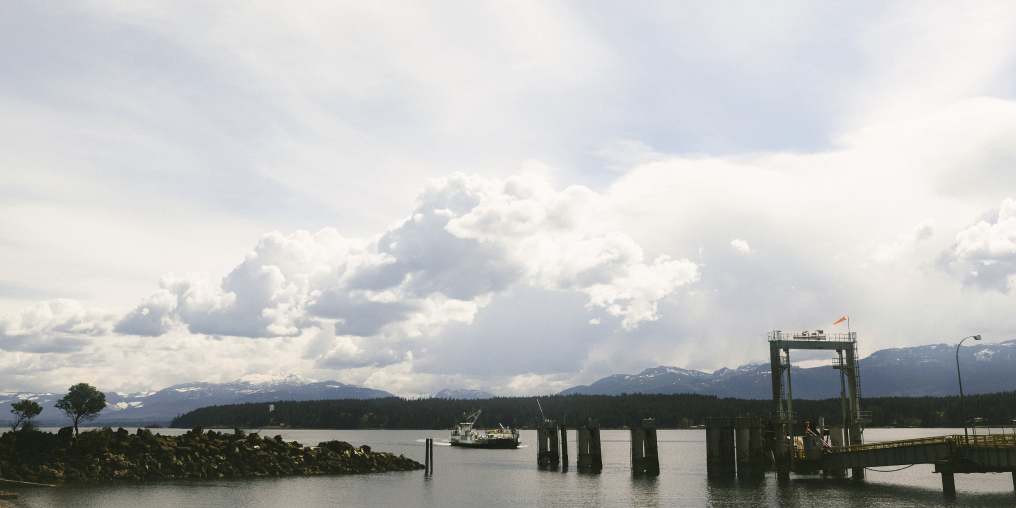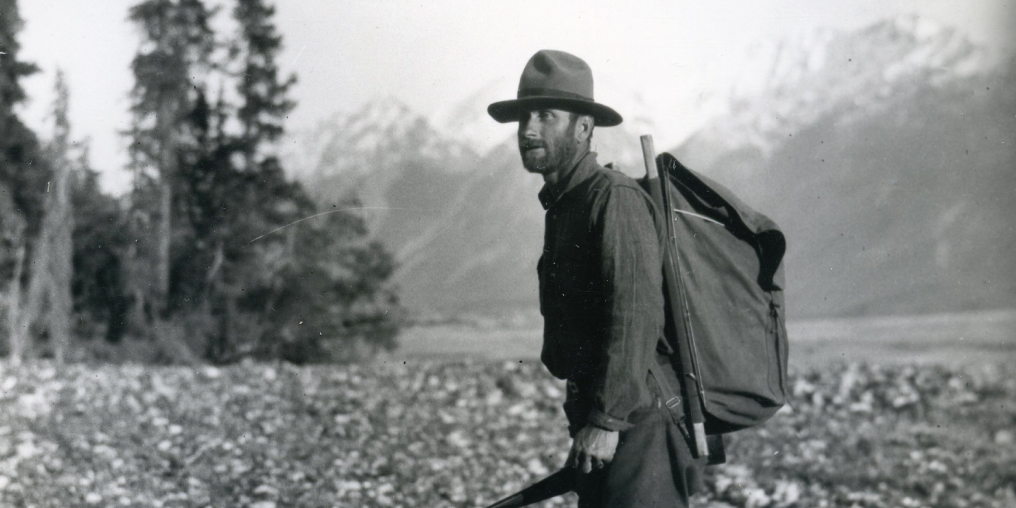To call Hornby Island “ferry dependent” is not just a figure of speech. If you live on this idyllic Gulf Island, or if you’re visiting, you need to take two ferries each way. Three, if you’re travelling from or to the mainland. No wonder Hornbyites talk so much about the ferries!
The people who staff the island boats hold an almost mythic role: safely taking people back and forth between the shores of Hornby and the big world “on the other side.” I spoke to three retired Hornby Island ferry workers about their lives on the water.
HARRY FEARMAN
DECKHAND AND CAPTAIN (1975 – 2013)
Why did you choose to work for the ferries?
I worked on tugboats for 10 years. In my mid-20s I noticed that on the tugboats, a lot of the guys were on their second and third marriages. I realized that if I wanted a more stable life, I should try something else. I came to Hornby, talked to the senior captain, and four days later I was working.
What did you love about the job?
Working one week on, one week off was terrific. It was better than terrific. We have a farm. And I had kids. There was a never-ending amount of stuff for me to do at home. Also, I got to go and do other boating stuff. I had nautical experience from all over the BC coast, so for instance I got to go up north and start a new ferry run between Port Hardy and Klemtu.
What insight did working on the ferries give you into island communities?
Working on the ferry became a big part of my social life. My co-workers became my friends, and also there were travellers going back and forth. They’d ask us how we’re doing and would be actually interested. People still know me—there are people saying hi to me all the time and I don’t necessarily have a clue who they are!
What’s one wish you have for island transportation?
I wish BC Ferries was more ferry-oriented. With the last two CEOs, one was an engineer and one was an airport guy.
PETE KIMMERLY
SENIOR MASTER (1992 – 2007)
Why did you choose to work on the ferries?
I used to be the senior master of the fleet for Gulf Oil up in the Arctic. I was in charge of 28 ships and I was master of the Terry Fox, which is arguably the best icebreaker in Canada. But then the fleet was sold. I needed a job, and I went to BC Ferries. With my level of experience, they gave me a clearance for almost every ship, so I got to work all around the coast. I looked around and saw that Hornby was the best place to work, because it’s a 12-hour shift. So you work 84 hours a week, and then you get a week off.
What did you love about the job?
The job is what you make it, and so I made it into a very, very interesting job. I was used to running a ship in the Arctic for 16 weeks straight and keeping the crew motivated the whole time. That’s a talent I developed and that I brought to Hornby. I set out to make the Hornby ferry into a very pleasant workspace. We ended up with zero absenteeism, when people were complaining about 12 per cent absenteeism on other runs.
Also, we did all kinds of ship moves all over the coast. When you do a ship move, you work for 50 hours straight. We were the only operation on the coast willing to do that. I had a saying, “If it’s impossible, it will just take us a little longer.” And “if you want something weird done, call Hornby because we do weird.”
What insight did working on the ferries give you into island communities?
Every single island community is hugely different. They’ve all got their own personality. I worked them all. Some islands are into agriculture. Some are into … Well, in Alert Bay we used to go target shooting at the rifle range. You wouldn’t think of doing that on Hornby. On Hornby everyone plants flowers.
What’s one wish you have for island transportation?
A bigger ferry for Hornby.
GARY LAW
BRIDGE WATCHMAN, DECKHAND,
NIGHT WATCHMAN (1992 – 2017)
Why did you choose to work for the ferries?
I felt it was a good fit—and as it turned out, it was. I had marine experience and I’ve always been a people person. This job combined the two and worked out great.
What did you love about the job?
The way the ferry is literally our lifeline. If you look around your home right now [on Denman or Hornby Island], everything you see came on that little ferry.
We brought home newborns, we transported those who had passed [away] off the island, and everything in between. We did emergency runs in the dark night. And we’d see the number of folks returning each summer like swallows, from as far away as Toronto. So it was a very rich experience. It was an honour to be part of it.
What insight did working on the ferries give you into island communities?
What islanders have in common is our ability to do well under adversity. It brings out the best in us. We jump into the fray.
And there’s our self-sufficiency. Our ability to operate independently and rely on our own wits is vital. We can’t just call on people to do everything for us, like we would in a city. Our independence is what makes us thrive. I think this separates us from people who don’t live on a small Gulf Island.
What’s one wish you have for island transportation?
A seamless ferry/bus/ferry/bus service starting at Buckley Bay to move residents and visitors alike to the outer island and back.





